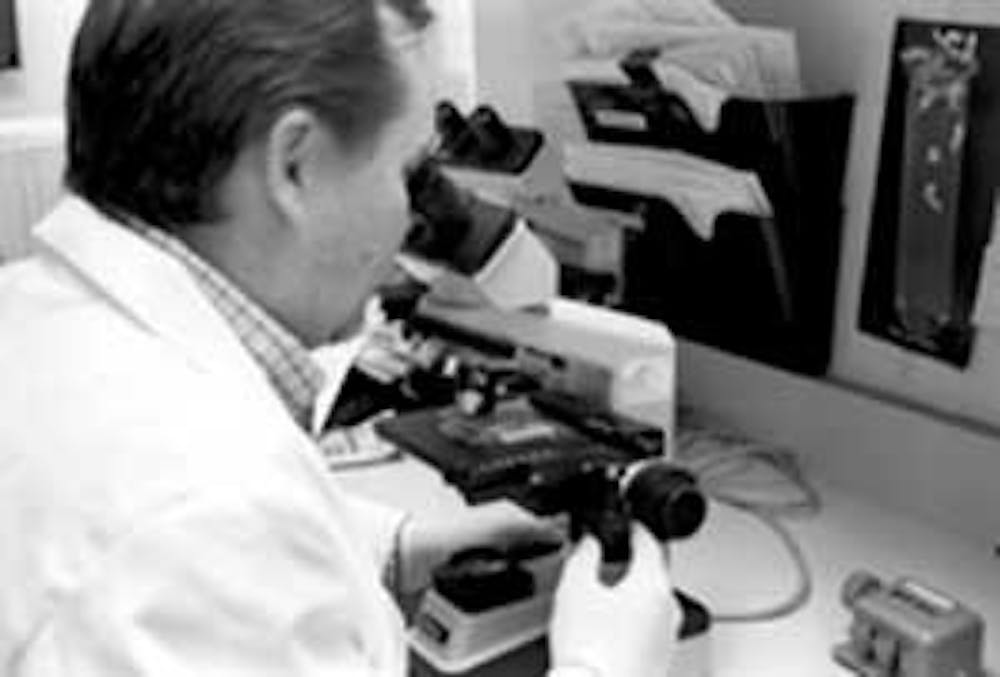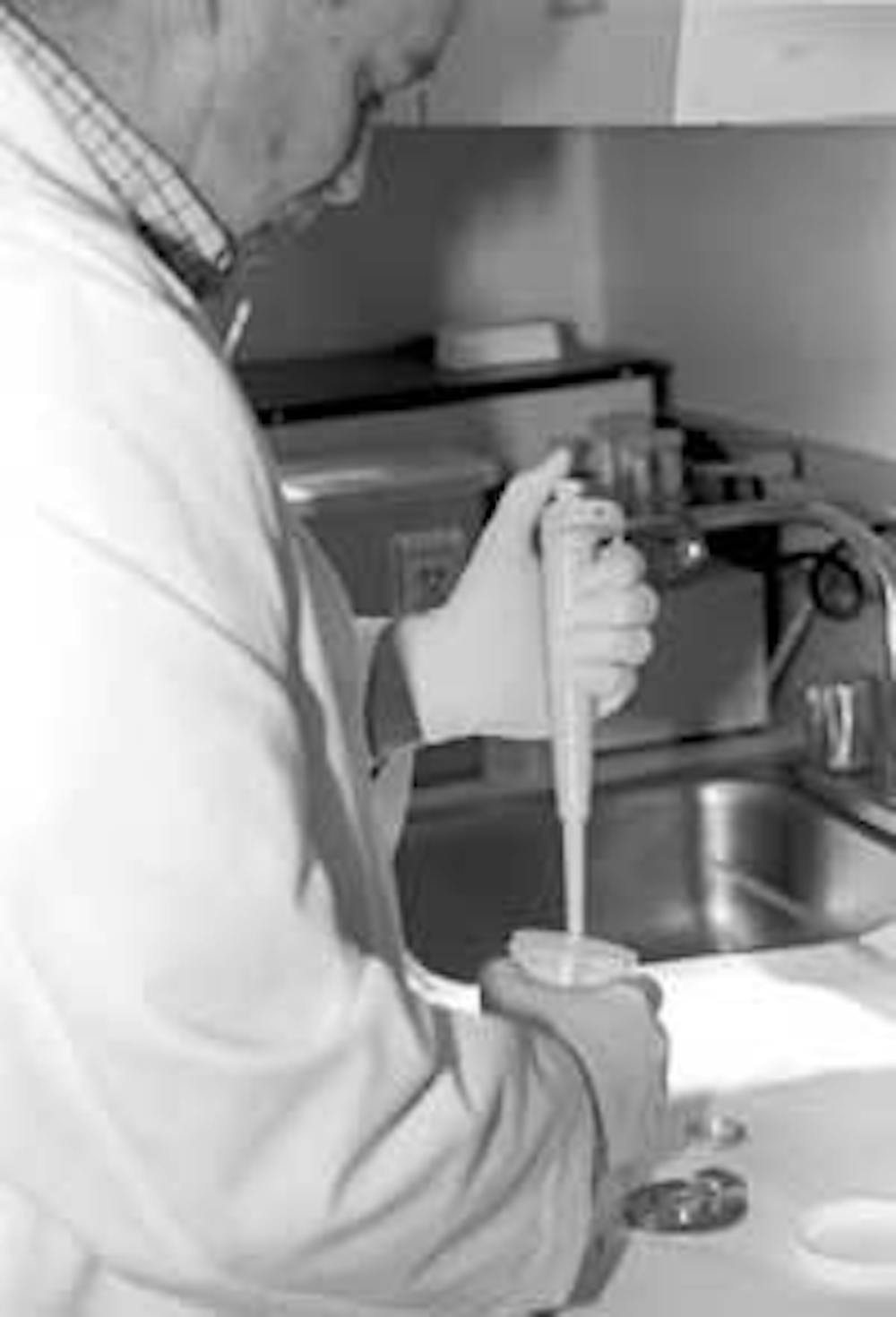When Colleen French first decided to sell her eggs, it was for the money. The second time, it was for the money and the gift her eggs would be to an infertile woman.
This month, when she sells her eggs for the third time, it will be almost entirely for humanitarian reasons, French said.
"I'm Christian. I'm religious. I think every woman was meant to become a mother," she said. "Just because you can't (produce) a child on your own doesn't mean you weren't meant to have a child."
French, a 24-year-old ASU elementary education major, saw an ad in the State Press this year and was attracted to the $2,500 reward attached. She first sold her eggs in April and again in August.
"I won't lie, I need the money," French said. Now her financial situation is more stable, yet she continues to sell her eggs.
"When you go into the lobby (of the reproduction clinic) and see these really anxious women who want to become moms, it makes you so excited because you're going to help them," she said. "That's what keeps me coming in."
This will be her last time, though.
While there is no mandate on how many times a woman can donate, most clinics allow each woman to donate three times, said Nevada Feltner, a registered nurse at Arizona Reproductive Medicine Specialists in Phoenix. The center focuses on reproductive endocrinology and infertility.
Feltner said the process is safe and the restriction is present as a precaution. There is only a small chance that donating eggs too many times can result in infertility.
"It is a very safe process," Feltner said. "We call and check on (the donors) for months after the surgery to make sure their (menstruation) cycles are normal."
Most women see ads for egg donation and call a reproductive center with questions. If they are still interested, they set up an appointment with the center. Next, the potential donor fills out a thick stack of paperwork.
"Just looking at that packet is crazy," French said. "That's what turns most people away."
The paperwork calls for detailed information on a donor's habits, hobbies and medical history, as well as their relatives' medical history.
The donor must meet with a psychiatrist and be on time and well groomed for each appointment. If she passes this phase, nurses draw her blood and make sure it's healthy. If so, she is set up with a couple.
For two weeks, the donor is put on birth control and medications that decrease natural estrogen levels. Then she gives herself fertility shots in the leg, buttocks or stomach for one month.
"I'm so scared of needles and I hate anything like that," French said. "But it really doesn't hurt at all."
The donor's pregnancy potential increases dramatically and she is urged to avoid sexual activity.
Toward the end of the process a "trigger shot" is given to the donor every night for one week. It makes her eggs move from her ovaries to her uterus. Soon after, she is put under local anesthesia and doctors remove her eggs with a hollow needle.
French said the only part of the process that hurts is when the eggs move from the ovaries to the uterus. Usually about 15 eggs move into the uterus for removal.
"I was doubled over for a few hours the first time, but the second time I didn't have any pain," she said. "It's the same thing any woman has experienced when she has her period, and then it goes away fast."
Another donor, 2001 ASU graduate Sonnet Bingham, had a different experience. Hers was more physically painful but overall rewarding. French's donations were anonymous, but Bingham worked closely with the couple that received her eggs.
"Donating eggs is a really cool experience," Bingham said, "because the people I was trying to help were so cool.
"That year was really tight (financially) and I had been flirting with the idea of donating eggs. There was an ad in the State Press asking for a girl with certain requirements which I happened to meet. Even though it took me about a week to get up the courage, I made the phone call."
When Bingham met the couple, her confidence in the process grew. She wanted the couple to become parents, needed the money and was curious about what one of her offspring would look like.
Her eggs didn't result in pregnancy, but when the woman, Nancy, tried another donor, she had twins. Nancy named the girl Sonnet, and the boy Skylar, after Bingham's brother.
While Bingham and French said they are fervent supporters of egg donation, they also support adoption.
"Adoption is a great thing to do," French said. "But it's a much harder process and the child is not as much their own."
Feltner said some parents should consider adoption over artificial insemination.
"The pregnancy experience isn't as important to some people," she said. "Adoption can be a great alternative for them.
"For the people who want the whole expecting process, we have women who want to help them."
Feltner said that to her knowledge, all the donors she has worked with over the last two years say their experience was positive.
"It makes them very happy," she said. "Everyone who comes through here feels like they're giving a precious gift to a person. They say this is the greatest experience they've ever had."
The process is also time consuming and tedious, however.
"I definitely think I earned my money," French said.
She added that the process shouldn't be easy. Because egg donation takes a lot of time and effort, only people who are really serious about it will donate.






